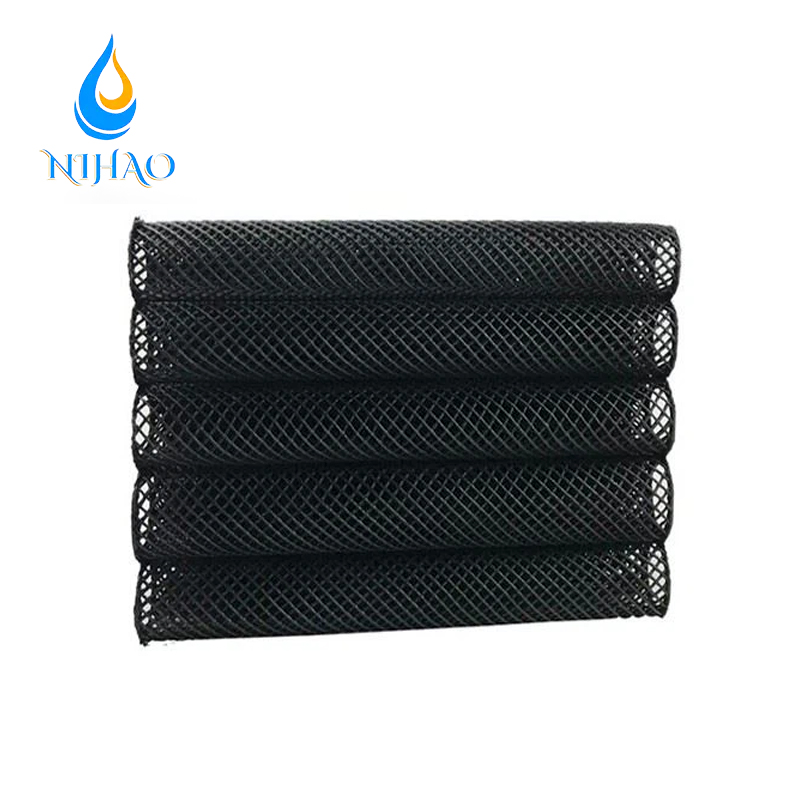 +86-15267462807
+86-15267462807
Composition:
Bio Block filter media is composed of a carefully curated blend of materials designed to create an optimal environment for microbial growth and attachment. This unique composition includes substrates that provide a high surface area for biofilm formation, essential for fostering a diverse and active microbial community within the media.
Structure:
The structural design of Bio Block is characterized by a porous and interconnected matrix. This porous nature enhances the media's surface area, promoting the colonization of microorganisms. The intricate structure facilitates efficient water flow, ensuring that contaminants come into contact with the biofilm, initiating biological treatment processes.
Increased Treatment Efficiency:
Bio Block filter media significantly accelerates biological reactions, leading to a more rapid breakdown of organic pollutants. The high surface area and porous structure foster a robust microbial community, enhancing the media's ability to absorb and metabolize contaminants. This results in improved overall treatment efficiency.
Improved Resilience:
Bio Block exhibits resilience to fluctuating influent conditions. Its design enables it to withstand variations in organic load and environmental factors, maintaining consistent performance over time. The longevity of Bio Block reduces the need for frequent replacements, minimizing maintenance requirements.
Municipal Wastewater Treatment Plants:
Several municipal wastewater treatment plants have successfully integrated Bio Block filter media into their processes. Comparative analyses demonstrate a notable improvement in treatment outcomes, showcasing the effectiveness of Bio Block in large-scale facilities.
Industrial Applications:
Customized solutions of Bio Block for specific industrial effluents have proven successful. Industries adopting Bio Block technology have reported enhanced treatment performance, meeting and exceeding regulatory standards. Case studies highlight its adaptability and effectiveness across diverse industrial settings.
Sustainability:
Bio Block contributes to sustainability by reducing the carbon footprint of wastewater treatment processes. The technology's efficient microbial processes decrease energy consumption and limit the need for additional chemicals, promoting environmentally friendly practices.
Cost-effectiveness:
Bio Block filter media offers economic benefits by reducing operational costs. Its longevity and resilience translate to decreased maintenance expenses, while the enhanced treatment efficiency minimizes the costs associated with non-compliance with environmental regulations.
Continuous Innovation:
Ongoing research and development efforts are focused on refining Bio Block technology. Innovations aim to further optimize its composition and structure, enhancing its capabilities for diverse applications within wastewater treatment.
Global Adoption:
The future holds the potential for Bio Block to become a standard in wastewater treatment globally. Collaboration and knowledge exchange between researchers, industry professionals, and policymakers will play a crucial role in promoting the widespread adoption of this innovative filter media, contributing to a more sustainable and efficient water treatment landscape.